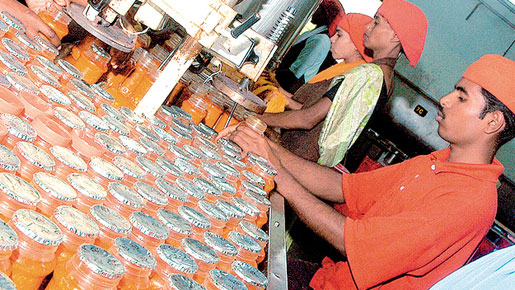
Despite the growing focus on food and consumer product safety, the last decade has seen a number of disastrous product recalls in the fast moving consumer products industry that have had worldwide implications. Manufacturers, distributors and retailers of FMCG have been thrust into the media spotlight like never before. In fact, companies that consumers once trusted are now facing increased scrutiny and reduced market share.
As developed nations grow more socially conscious, ethical sourcing of products has also become a higher consumer priority. The total carbon footprint of production – not just of transport – is now a common consumer concern. Furthermore, growing worldwide demand for food and other consumer products, especially from emerging economies, is causing tremendous strain on manufacturers, sometimes leading to quality control oversights that only further compound the problem.
What’s more, the exponential growth of social media has added a new dimension to this challenge. Social media makes the voice of the consumer more accessible and immediate than ever before. As a result, manufacturers and suppliers must be both fast and effective if they are to have any hope of limiting adverse consumer confidence on the brand and the resulting financial damage. As a result, retailers, brand managers and legislators are turning up the heat on the FMCG supply chain. Existing legislation and retailer mandates are now being enforced much more rigorously. Also, new EU regulations will soon require improved traceability, more information on product labels, increased ethical sourcing and greater process efficiency.
Suppliers of consumer goods are already aware of the current challenges and future threats, but vary significantly in their readiness to meet them. However, one thing is clear: This is no longer a lower-level departmental problem. This is a boardroom issue affecting growth, profitability and even business survival. To address this complex challenge, leading FMCG companies have adopted enterprise software to automate and integrate traceability across the multiple steps in their supply chain. Just as accounting systems act as financial systems of record, FMCG companies are using enterprise resource planning (ERP) systems integrated with product lot tracing functionality as their operational system of record. These systems provide the transparency and timely access to product and process information needed to succeed in today’s environment.
An operational system of record with lot tracing capabilities enables the business to trace back to the source of all ingredients and trace forward to the disposition of all food products made and sold. Increased confidence via this level of tracking along with proof of “in control status” for customers, auditors and regulatory inspectors allows FMCG companies to establish a competitive advantage that can add measurable business value and potentially huge cost savings. The Ross Enterprise suite of applications from CDC Software provides comprehensive record keeping and audit trails that are critical for FMCG manufacturers in highly regulated industries such as food, consumer goods, pharmaceutical and chemical processing. The suite’s ‘Trace Express’ lottracing application delivers highly intuitive user interface that dramatically reduces the time to identify, review and process the data related to any particular lot throughout the supply chain.
‘Trace Express’ helps manufacturers comply with the growing list of government-imposed regulations. And it enables FMCG companies to meet the brand-protection measures from their retail and distribution customers. The message is clear: In today’s increasingly challenging business and regulatory environment, FMCG companies must ensure they have the right technology in place to ensure the safety and quality of their products and maintain customer confidence.
To learn more about Ross Enterprise and Trace Express visit http://www.cdcsoftware.com or call +44 (0) 1604 614 122

